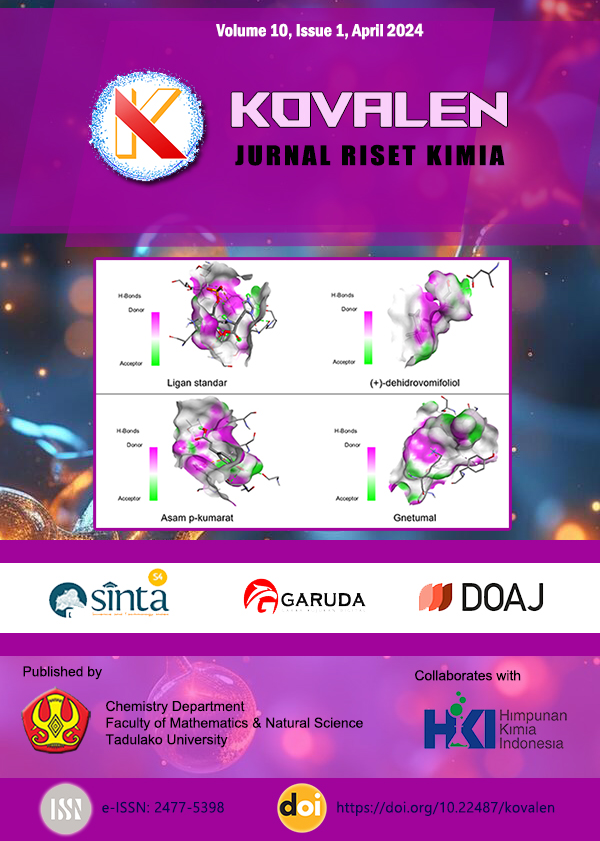Main Article Content
Abstract
The increasing environmental pollution is one of the consequences of human activities that continue to expand. The environment has limitations in coping with pollutants generated by humans, such as waste from the laundry industry. This research aims to evaluate the combined effect of zeolite produced from corn cobs and the use of microorganisms capable of degrading anionic surfactants, with the goal of reducing the concentration of anionic surfactants in laundry wastewater. The methods used include adsorption using corn cobs as adsorbents and biodegradation using surfactant-degrading bacteria. Morphological observations using Scanning Electron Microscope (SEM) indicate that the produced zeolite has a crystal structure that stacks up like clumps of cubes. X-ray Diffraction (XRD) analysis shows that zeolite synthesized with a silica extraction ratio from corn cobs and sodium aluminate of 20:20 mL has been successfully conducted. The biodegradation process of anionic surfactants in laundry wastewater using a combination of synthesized zeolite and Pseudomonas aeruginosa bacteria employing the Methylene Blue Alkyl Substance (MBAS) method has shown a decrease in concentration to 1.66 mg/L and degradation of 33.55%, especially in sample 3 with variations of 7.5 grams of corn cob zeolite and 15% microorganisms, during a 5-day experiment.

